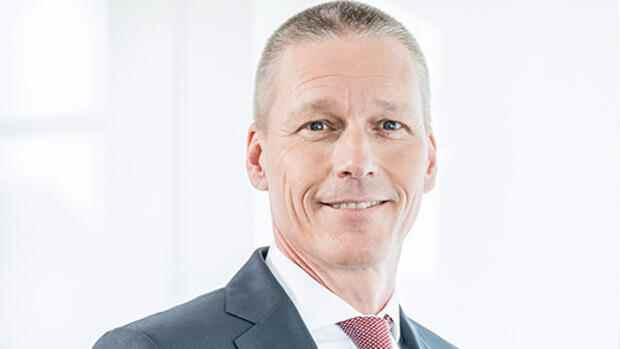Dusseldorf The supplier Knorr- Bremse and CEO Jan Mrosik are going their separate ways. Knorr-Bremse announced on Friday that Mrosik was leaving the company at the end of April and was stepping down from the Executive Board with immediate effect. The supervisory board decided unanimously under its outgoing boss Klaus Mangold. The separation takes place “on the best of terms”. Mrosik has only been CEO at Knorr- Bremse since the beginning of 2021. It is the third change of management at the MDax company within three years.
CFO Frank Markus Weber will take over Mrosik’s duties until a new CEO is found. The Supervisory Board has initiated the search for a successor. According to supervisory board circles, it could take several months until a successor is found.
“The rapid global change processes in the crisis development of the world economy and the enormous dynamics of the markets will be of particular importance in the requirement profile,” the company explained. Mrosik was not believed to be able to lead Knorr- Bremse through the severe crisis that the company may now face as a result of the war in Ukraine.
Mrosik switched from Siemens to the truck and rail supplier in early 2021, he had no expertise in trains or trucks. At Siemens, he was Chief Operating Officer of the Digital Industries division. The digitization of Knorr- Bremse was to become his project. Unlike his hapless predecessor, Bernd Eulitz, he had the confidence to finally leverage synergies from Knorr’s truck and train business. So far, both divisions have largely worked separately from each other.
Top jobs of the day
Find the best jobs now and
be notified by email.
The botched Hella takeover is hanging on
But in March 2021, Heinz Hermann Thiele, the patriarch and major shareholder of the supplier group, died. Until shortly before his death, he was very actively involved in the company’s activities and even had himself re-elected to the supervisory board. In July, Mrosik’s attempt to buy the automotive supplier Hella and to establish itself as the fourth major supplier group alongside Bosch, ZF and Conti fails.
Above all, the botched Hella deal left Knorr in tatters, the share price fell by more than 20 percent, and investors and parts of the management team were upset. At the end of October, Truck boss Peter Laier finally announced his early departure at the end of the year, and other important top performers were leaving the company.
Mrosik tried to flee to the front. At a capital markets day in November, he promised that Knorr would grow by 5.5 to 6.5 percent every year until 2025, with an operating margin of 14 to 16 percent, he explained. That’s a lot for an industry in which more and more suppliers are struggling to survive.
>>> Read here: Change to e-mobility: the supply industry is becoming a two-class society
“We are not subject to the economies of scale of the large automotive suppliers,” Mrosik justified his optimism. “Other laws apply in the truck business, with its comparatively small series, and trains are small numbers,” Mrosik told the Handelsblatt. After all: In 2021, the company closed with an increase in sales of 9 percent and a return of 13.6 percent with sales of 6.7 billion euros.
But neither investors nor his fellow board members warmed to Mrosik’s course. An insider says he never arrived at the company. And the challenges are growing: in China, the train division’s most important market, Knorr is losing ground to local competition. The financial investor Carlyle took over the rail supplier Schhaltbau, which would have fitted well into the Knorr portfolio, right on the doorstep.
And in the truck business, ZF is attacking the Knorr domain. In 2020, the Friedrichshafen-based company bought Wabco, a brake specialist that enables ZF to offer brakes and steering from a single source. This means that the much larger Knorr rival has been technologically upgraded when it comes to the future field of autonomous driving and the brakes and steering become one system.
A crisis manager is now in demand
The Ukraine war provided the final impetus for the separation. The company now has to secure supply chains and raw materials – and Mrosik is not a crisis manager, according to those close to the supervisory board.
CFO Frank Markus Weber must now see to that. Knorr- Bremse announced that the former Daimler manager’s contract had been extended by five years. A successor for LKW boss Peter Laier has also been found. Bernd Spies, who has been responsible for the commercial vehicle division for eight years, has also been promoted to the Management Board with immediate effect.
The search for a successor to Jan Peter Mrosik is now up to Reinhard Ploss. The outgoing CEO of the chip manufacturer Infineon is to take over the position of Klaus Mangold at the general meeting on May 24th.
Ploss inherits a difficult legacy. Because the inheritance of the deceased company patriarch Thiele has not yet been settled. Although Knorr is listed on the stock exchange, 59 percent of the shares are held by the family-owned KB Holding.
Thiele’s plan to transfer the shares to a foundation could not be realized during his lifetime. “The establishment of the foundation is ongoing, but is taking longer than expected,” said the company on Friday.
More: Infineon boss Ploss becomes chief supervisor at Knorr-Bremse
